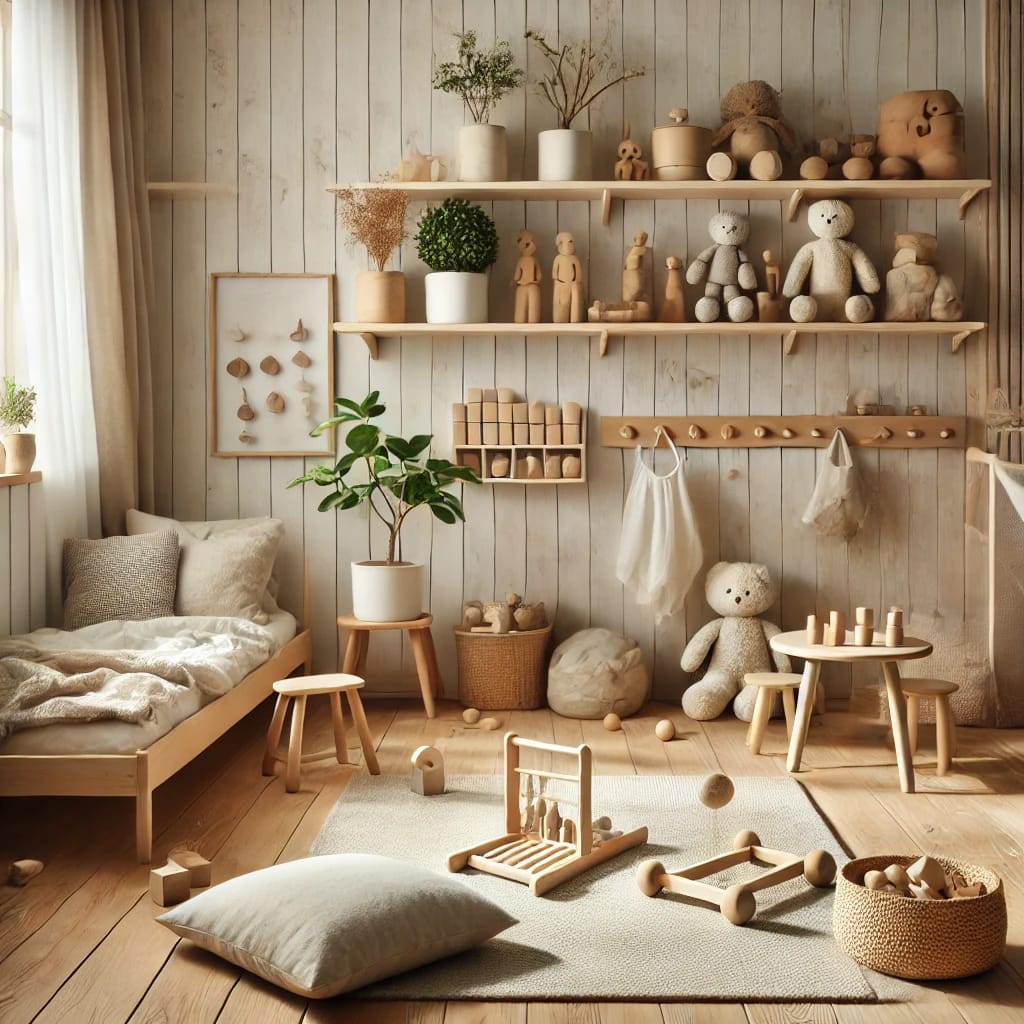
Childhood Minimalism: Raising Happy Kids with Less
In the age of consumerism, it's easy to get caught up in the idea that we need to shower our kids with toys, clothes, and gadgets of all kinds to make them happy. But what if we took a different approach, inspired by minimalism? Reducing the amount of objects is not only an act of love towards the planet, but also towards our children. Let's find out how childhood minimalism can promote healthier, more conscious, and happier growth.
What Does Minimalism Mean for Kids?
Childhood minimalism is not about depriving children of what they need, but rather about carefully choosing what is truly essential and valuable to them. It is about focusing on what is truly important: experiences, relationships and learning, rather than superfluous objects. Fewer things allow children to develop greater imagination, creativity and the ability to concentrate.
Adopting a minimalist lifestyle from an early age also has important ecological repercussions. Fewer purchases of toys and clothes translate into a reduction in demand for production, which in turn reduces the environmental impact. Let's think about how much plastic and resources are saved by choosing quality and durable toys, perhaps made with sustainable materials such as certified wood or organic cotton, rather than disposable plastic products.
How to Start Living on Less
Minimalism Helps the Mind Too
Reducing the number of toys also helps improve the quality of play. Fewer distractions allow children to focus on what they have, further developing their imagination and problem-solving skills. Studies have shown that a less chaotic environment helps reduce stress and anxiety in children, promoting a sense of calm and well-being.
Adopting minimalism in our children's lives not only helps them grow in a more serene and creative environment, but also contributes to the sustainability of our planet. Raising children who learn to live with less means creating more aware and responsible adults, able to appreciate the value of essential things and respect our ecosystem.
What Does Minimalism Mean for Kids?
Childhood minimalism is not about depriving children of what they need, but rather about carefully choosing what is truly essential and valuable to them. It is about focusing on what is truly important: experiences, relationships and learning, rather than superfluous objects. Fewer things allow children to develop greater imagination, creativity and the ability to concentrate.
Adopting a minimalist lifestyle from an early age also has important ecological repercussions. Fewer purchases of toys and clothes translate into a reduction in demand for production, which in turn reduces the environmental impact. Let's think about how much plastic and resources are saved by choosing quality and durable toys, perhaps made with sustainable materials such as certified wood or organic cotton, rather than disposable plastic products.
How to Start Living on Less
-
Mindful Decluttering: Involve children in the process of sorting their objects. Ask them which toys they love the most and donate the ones they no longer use. In this way they learn the value of sharing and gratitude.
- Choose multifunctional toys: Opt for objects that can stimulate different aspects of development. A wooden construction set, for example, can encourage creativity, logical thinking and motor coordination.
- Promote experiences: Instead of giving another toy, why not give an experience? Nature trips, museum visits, or simple outdoor activities teach much more than any object can.
Minimalism Helps the Mind Too
Reducing the number of toys also helps improve the quality of play. Fewer distractions allow children to focus on what they have, further developing their imagination and problem-solving skills. Studies have shown that a less chaotic environment helps reduce stress and anxiety in children, promoting a sense of calm and well-being.
Adopting minimalism in our children's lives not only helps them grow in a more serene and creative environment, but also contributes to the sustainability of our planet. Raising children who learn to live with less means creating more aware and responsible adults, able to appreciate the value of essential things and respect our ecosystem.